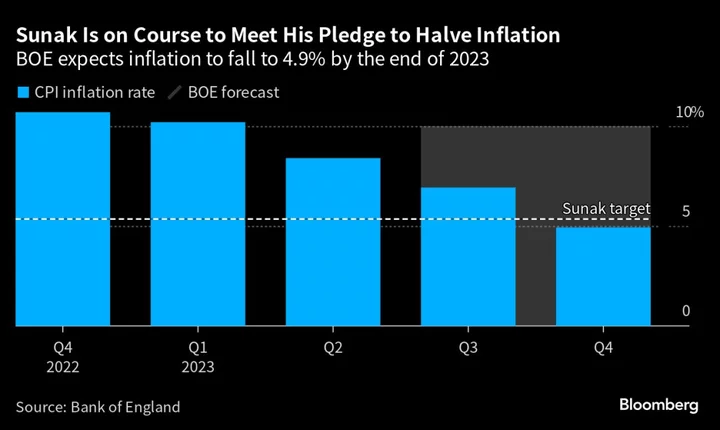UK lawmakers return from their summer break on Monday, with Prime Minister Rishi Sunak engulfed in a crisis over crumbling school buildings and his Conservative Party lagging in opinion polls ahead of a national election expected next year.
Over the weekend, Chancellor Jeremy Hunt vowed to “spend what it takes” to keep children safe after the government ordered more than 100 schools to close sites days before the start of the new academic year because of concerns about the safety of buildings constructed with reinforced autoclaved aerated concrete.
The controversy is threatening to dominate the political agenda and undermine government efforts to seize the initiative as it battles to overturn the opposition Labour Party’s commanding lead over the Tories in opinion polls.
Sunak and Hunt had hoped to capitalize on a falling inflation rate and an unexpected boost for the government — news on Friday that the economy recovered from the coronavirus pandemic far more quickly than statisticians had previously estimated, and faster than Germany, France and Italy.
Instead, ministers find themselves facing fresh questions over the Conservatives’ handling of public services during their 13 years in power. Labour blames the problem on mismanagement and the years of austerity that saw spending on school buildings in England fall by 50% in real terms between 2010 and 2022.
“I can think of no more defining image about the last 13 years of Conservative government than children being sat in classrooms under metal props to prevent the ceilings literally falling in on their heads,” said Bridget Phillipson, who speaks on education for the main opposition party.
Labour is calling on the government to publish a full list of all the schools affected amid press reports that thousands more could ultimately be found to be at risk. Hunt said the government is acting “immediately” when informed of new risks but declined to say how much the cost to the exchequer will be.
The furor is all the more damaging for the government because it feeds a narrative of economic decline under the Conservatives.
Some rank-and-file Tories want the government to lower taxes to galvanize the economy. But Hunt appeared to play down any prospect of doing so in his Autumn Statement, saying his priority was cutting inflation in half.
Despite statistical revisions last week showing the economy was bigger than previously thought by the end of 2021 and larger than before the pandemic, the Tories face fighting the next election against a difficult backdrop.
Economists are predicting a protracted period of stagnation or even recession as rising mortgage rates pile further pressure on households struggling with the spiraling cost of food and basic goods.
On Wednesday, lawmakers on the Treasury Committee will question Bank of England Governor Andrew Bailey and two of his colleagues on the Monetary Policy Committee, which has delivered 14 successive interest-rate increases since late 2021 in its battle to tame inflation.
The government is holding out the prospect that by the end of 2023 prices will be rising at just half the pace of a year earlier, as they seek to convince voters that the cost-of-living crisis is coming to an end. However, BOE officials have signaled they are not yet done raising rates, and that cuts in the cost of borrowing are unlikely anytime soon.

